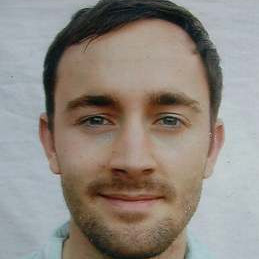Alumnus receives competitive Gates Cambridge scholarship
Open gallery

Isaac Holeman BA ’09 is the first Lewis & Clark alumnus to receive a highly competitive, full-cost Gates Cambridge Scholarship for study at the University of Cambridge. As Holeman explains, “Many have compared it to the Rhodes Scholarship, but being based at Cambridge instead of Oxford isn’t the only difference. While a number of older and more traditional scholarships emphasize leadership potential—likelihood to become presidents, Supreme Court justices, or senators—Gates Cambridge is about leaders committed to improving the lives of others, particularly the poorest and most disenfranchised in society.”
Isaac Holeman BA ’09
Major: Biochemistry and Molecular Biology
Hometown: The Dalles, Oregon
Tell us about your scholarship, where you will be studying, and what you’ll be researching while you’re there.
I’m currently studying for a master’s in sociology at the University of Cambridge, and the Gates Cambridge scholarship will allow me pursue a PhD in management studies. My research relates to my experience cofounding Medic Mobile during my senior year at Lewis & Clark.
Medic Mobile is a social enterprise that uses communication technologies to improve the health of underserved communities. Today the organization employs 25 and has impacted the healthcare of 3 million people in 20 countries, and our work with technology has been recognized in a number of venues. Yet, to my disappointment, in some projects we used these award-winning technologies but achieved little or no improvement in health outcomes. My PhD is dedicated to finding out why.
Many studies have aimed to test whether or not a mobile health intervention is generally “effective,” but my work suggests that technologies do not cause predictable, uniform health outcomes improvements in diverse settings. Rather than focusing on technology, observing the recurring practices of health workers as they use these technologies may shed light on how such interventions take effect and how successes might be replicated.
How did your Lewis & Clark education help prepare you for this opportunity?
I frequently rely on lessons associated with conversations and specific professors. Loretta Johnson, assistant professor with term of humanities, who taught my very first course in college. Deborah Lycan, professor of biology, who advised me for summer research and my thesis. They both helped me gain confidence in my own ability to ask questions and pursue answers rather than waiting to be told what to ask and what correct answer to memorize. When I found myself leading an organization in an emerging field, no one could tell me exactly which questions to ask or how to go about answering them—I needed to think and learn independently.
More specific to the Gates Cambridge process, I majored in biochemistry and molecular biology because I wanted to study medicine—health has long been my passion. I took social science courses because they were interesting, including a semester-long study abroad in which I conducted qualitative research at a health clinic in Havana, Cuba. My transition from natural to social science for graduate school would have been much harder if my undergraduate study had been less diverse, and my qualitative research in Havana even came up during my Gates Cambridge interview. During the interview I was also asked why someone who cares about global health would want to study and teach management. I was able to explain the specific ways that studying management is currently helping me mentor some of the social ventures in Lewis & Clark’s new entrepreneurship program.
What are your plans for the future, and how do you think your Gates Cambridge experience will figure in those plans?
As a researcher, I’d like to demonstrate that global health programs can be fascinating and productive case studies for social scientists in management and organizational behavior. When I complete my PhD, I’d like to move back to the United States and secure a teaching position where I can focus on using the social sciences to take on major social problems, and on advising social purpose, technology, and innovation startups. The Gates Cambridge network is full of ambitious, interesting people who are passionate about many of the same topics—social enterprise, global health, and changing the institutions of higher education so that universities can be better champions of change makers.
More Newsroom Stories
Public Relations is located in McAfee on the Undergraduate Campus.
MSC: 19
email public@lclark.edu
voice 503-768-7970
Public Relations
Lewis & Clark
615 S. Palatine Hill Road MSC 19
Portland OR 97219

